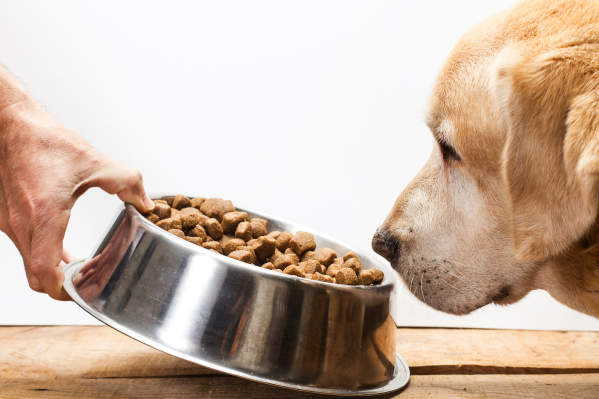We love our pups, and want to make sure they have the happiest, healthiest lives possible. One of the keys to a healthy life for our dogs (as well as us, if we’re being honest), is to make sure they’re eating a healthy diet.
With all the different types of dog food on the market, however, figuring out what kind is best for our pet can be difficult. The good news is that you can cut through all the branding and marketing and find out what’s really in the food your dog is eating by looking at the list of ingredients (pro tip: the ingredients that comprise the most weight are listed first). Read on to learn which ingredients you should avoid in dog food, and why they can be harmful to your pup.
Avoid Dog Food With "Meal" Rendered Products
According to the Association of American Feed Control Officials, rendered products often have the term “meal” listed in their titles (for example, “chicken meal” or “animal by-product meal”). Rendered products can be comprised of many unglamorous parts of an animal, such as offal, brain, and spleens. It also could include meat from animals that were sick, as well as expired meat from grocery stores. Because the contents of rendered products can vary, the nutritional quality can be low, and thus not very healthy for your pup.
According to Dr. Patrick Maheny, rendered fat can also be a potential source of Salmonella and toxins, which are also unsafe for your pet. And if you need more convincing that rendered products aren’t a good thing, rendered ingredients are considered unfit for human consumption. A good rule of thumb: If you’re not allowed to eat it, you might not want to give it to your pet either!
Avoid Artificial Preservatives And Coloring
A lot of dog foods also have chemicals and preservatives in them that can do more harm than good. Some commonly used ones are Ethoxyquin, BHA and BHT. The National Institute of Health has found BHA and BHT to be carcinogenic, and Ethoxyquin is also suspected to be linked to health problems like immune deficiencies, kidney failure, and cancer. When looking at different dog foods, make sure none of these ingredients are included.
If your dog food has bright colors, it likely has some artificial coloring ingredients like Blue 2 or Red 40 or Yellow 5. Although the impact of these dyes hasn’t been researched extensively for dogs, some experts warn that these dyes could cause problems like allergies, hyperactivity, and potentially even tumors. One thing is certain — they certainly aren’t beneficial to your pup and your dog doesn’t care what color their food is, so it’s best to err on the side of caution and avoid products that list these as ingredients.
Avoid Propylene Glycol
Propylene Glycol is not only found in some dog food, but also in other savory products like anti-freeze. It is, however, an FDA-approved ingredient for humans and can be found in foods like salad dressing as well. While Propylene Glycol has been shown to be OK for humans, it’s not clear that the same is true for dogs. Given this uncertainty and that it is known to be toxic to cats, it’s probably best to choose a dog food that doesn’t have it as an ingredient.
Avoid Too Much Corn And Rice
Corn and rice are often used as a filler in dog food. According to PetMD, however, your carnivorous pet should not have a carbohydrate-rich diet, as dog food low in protein has been linked to dogs becoming obese. Foods with high levels of either of rice or corn (in other words, it’s the first ingredient listed) can also cause chronic conditions in your dog like gas, bloating, and diarrhea.
Be Wary Of Grain-Free Dog Food
Grain-free food has been a popular “premium” choice for a number of years, but a recent study by the FDA has shown that grain-free dog food has resulted in fatal heart issues. These studies are ongoing and nothing has been officially concluded, but many vets recommend keeping your dog on foods with grains.
Grain-free foods often have peas, lentils, and other legume seeds as one of the main ingredients. If your pet eats a dry dog food with peas or lentils as a major ingredient, some veterinarians recommend switching your dog food immediately to a grain variety.
This might seem like a long list of ingredients to avoid, but the good news is there are plenty of dog food products out there that avoid all of these things, and it’s relatively easy to determine what food has what by looking at the ingredients. It’s a bit of work, but your dog will be happier and healthier for it, which makes the effort worth it.
